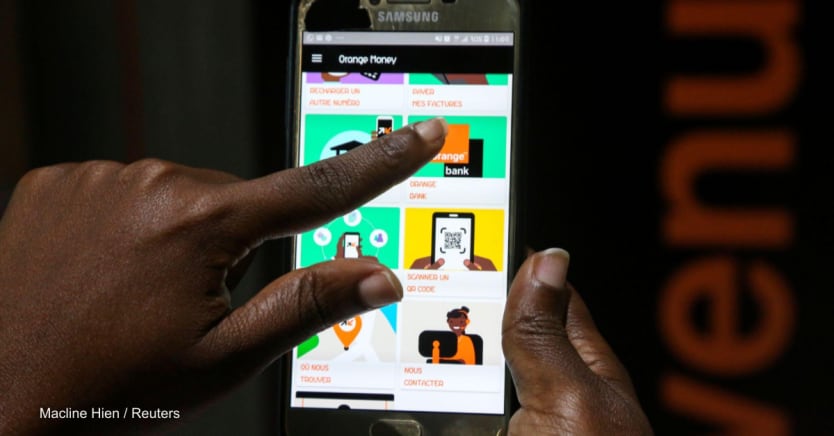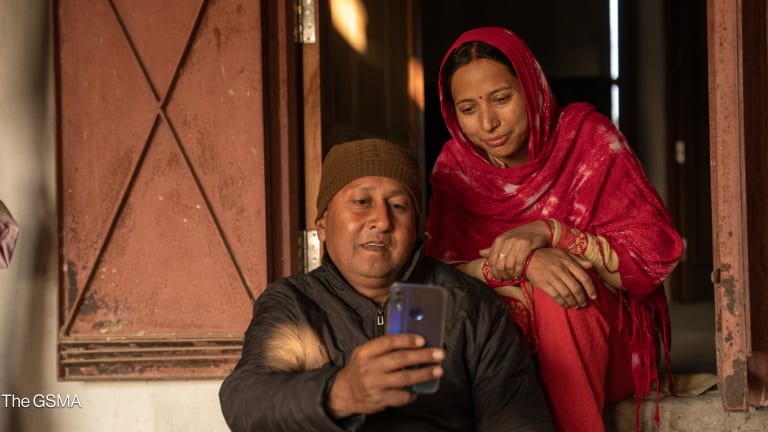Opinion: The gender gap won't close without digital financial equity

Earlier this year the World Bank released its latest Findex report, the triennial barometer for progress in financial inclusion among the world’s most underserved people. While there appears to be progress in financial inclusion, we must carefully consider how financial digitization risks excluding women from the global economy and take steps to mitigate. Entrepreneurship is the way forward.
On the surface, the Findex report bears good news. The pandemic and resulting digitization of financial services have driven greater financial inclusion across the board, while the gap between men and women’s access to financial services has shrunk from 9 percentage points to 6.
But a closer look tells a different story.
While the global gap between men and women narrowed, many regions, especially sub-Saharan Africa, and the Middle East and North Africa reported 12-percentage-point and 13-percentage-point gender gaps in financial inclusion, respectively — twice as large as the developing economy average. At the current rate of progress, it will take more than 100 years to fully close the gender gap.
The real story of women’s financial inclusion and the 2021 Global Findex Database report is that change is not coming quickly enough, and that digital financial equity is the solution.
—Digital finance plays a crucial role in reducing financial exclusion. Spurred by the COVID-19 pandemic, financial digitization accelerated, driving a surge in account ownership in many parts of the world, especially sub-Saharan Africa. But this financial digitization could ultimately lead to even greater exclusion of women from financial services.
According to the GSM Association’s Mobile Gender Gap Report 2022, women are now 16% less likely than men to use the mobile internet, which equates to 264 million fewer women than men using mobile internet tools. Overall, 740 million women worldwide don’t have access to financial services.
Imagine the economic benefits if we could include these 740 million women who remain shut out of the financial system.
Entrepreneurship, empowered by digital financial inclusion, can provide a path to greater equity. Women are 40% of the world’s workforce, and account for 37% of global gross domestic product. Studies show that women are quickly approaching parity with men in startup activities, especially in low- and middle-income countries, where 17% of women are entrepreneurs.
We know how to empower women entrepreneurs. If the financial services industry did nothing but include women at the same rate as men, they would unlock some $700 billion in revenue yearly from deposits, insurance premiums, loans, and other services. To unlock this growth, women need digital financial products, services, and policies that meet their unique financial needs.
To get there, we need urgent, collective action. It will take civil society, governments, and the private sector — especially mobile network operators and fintechs — working together to include these hardest-to-reach women. This is because the problem is complex — financial structures serve the wealthiest, not the poorest. Technology is clustered in urban areas and not in rural areas. Digital, financial, or business skills are not widely distributed, and neither is enabling technology.
Our organizations have just launched a global collective action initiative called the Women’s Digital Financial Inclusion Advocacy Hub to advocate for governments and industry to come together for real change in the way we approach the problem of women’s financial inclusion. Global, regional, and country-level organizations are working together to drive progress on digital financial equity for women, while local coalitions in Indonesia and Ethiopia are actively working to advocate where urgent digital access is needed for financial progress.
Here's what we’re calling for:
Women need equal access to technology. This must include mobile internet and devices to manage their payments and transactions. The fintech and banking sectors need to prioritize the development and scaling of digital financial products to meet women’s unique financial needs, and to go after the $700 billion in revenue they are leaving on the table.
Women need access to digital and financial skills. This will enable them to take full advantage of the products offered. In emerging markets, unbanked women are less likely than men to use an account self-sufficiently, which means access is not enough: We must ensure that financial and technology products are fully inclusive.
Women must have access to the financial services they need to run a successful business. This encompasses insurance, capital, savings, and business mentoring. Eighty percent of women entrepreneurs have unserved or underserved credit needs, creating a $1.7 trillion financing gap.
We can’t wait 100 years. The real story of women’s financial inclusion and the 2021 Global Findex Database report is that change is not coming quickly enough, and that digital financial equity is the solution. Investing in women is an investment in the global recovery from COVID-19. It is also a bet on 740 million women that access to the financial system can transform their lives and communities.
We are calling on civil society, governments, mobile network operators, and fintechs to act with urgency. And we invite you to join our movement to connect women worldwide to the technology, skills, and services they need to succeed. After all, it’s her economy too.

Search for articles
Most Read
- 1
- 2
- 3
- 4
- 5









